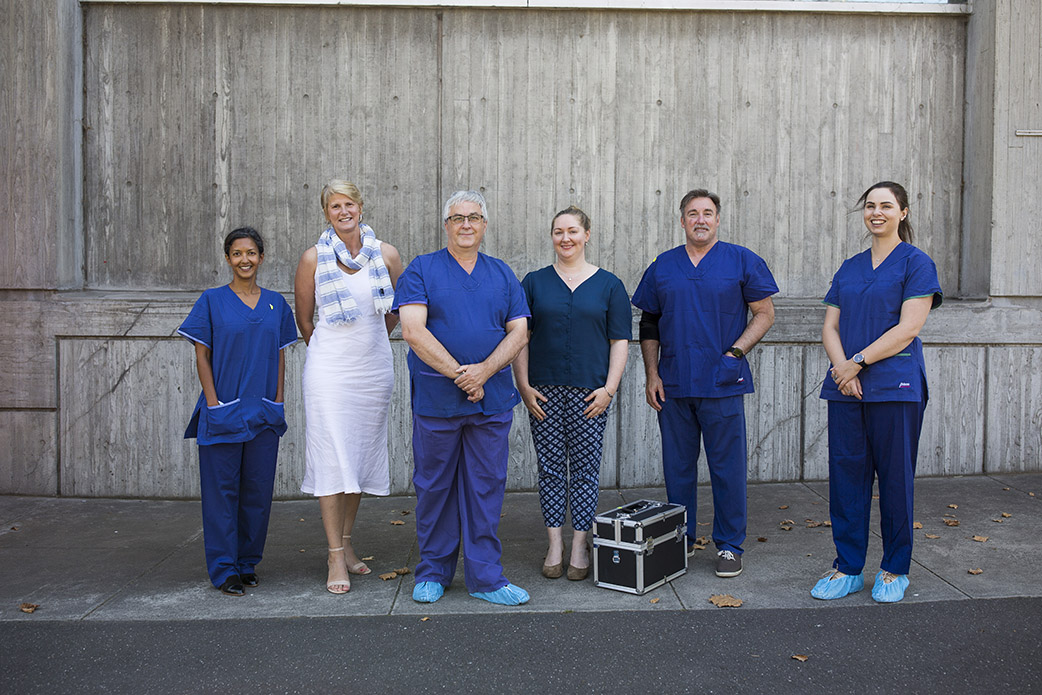This website uses cookies so that we can provide you with the best user experience possible. Cookie information is stored in your browser and performs functions such as recognising you when you return to our website and helping our team to understand which sections of the website you find most interesting and useful.
NEWS
Eye donation in the time of COVID
Since it started 30 years ago, the Lions Eye Donation Service (LEDS) has never closed down, and staff aren’t going to let a global pandemic break that record.
When someone donates their eye tissue after death, it can become a life-changing gift. It has the power to restore vision through corneal transplant surgery.
It can also be donated to medical research to help scientists better understand and treat blinding eye diseases.
About the Lions Eye Donation Service
As one of Australia’s largest providers of donated eye tissue, LEDS works around the clock.
The small team coordinates all aspects of the donation process – from talking to families about the option to donate, to surgically removing the eye tissue and allocating the donation to hospitals and researchers.
“It’s challenging and often emotionally draining work,” says senior coordinator Dr Prema Finn, who has worked at the service for 20 years.
“But at the end of the day, it’s incredibly rewarding.”

Stringent standards
The service has always had stringent safety and hygiene protocols. But when COVID-19 hit last year, it took on even greater precautions to protect staff and transplant recipients.
“Initially so little was known about this infectious virus so we had to be really conservative with donor selection. If a potential donor had any warning symptoms like fever or cough, we were unable to accept the tissue,” says Dr Finn.
Delays in medical supplies like masks and face shields arriving from overseas created additional challenges.
At times when elective surgery was cancelled in Victoria and scheduled corneal transplants could not go ahead, the eye bank had to adapt yet again.
Working quickly, the service managed to navigate the logistics of reduced air transport to reallocate donated corneas to New Zealand and other Australian states not impacted by lockdown.
“Despite the challenges of COVID-19, the Lions Eye Donation Service facilitated 279 eye donations which resulted in 473 sightsaving corneal transplants in 2020.
“The eye bank also provided 30 donations to research institutes like CERA, allowing scientists to continue making important discoveries during the pandemic.
“In 30 years we have never closed, and we haven’t during the pandemic either,” says Dr Graeme Pollock OAM, Director of the Lions Eye Donation Service.
“I’m proud that we have been able to continue to provide our service 24/7, without compromising quality or safety.
“Flexibility and adaptability have been built into the Lions Eye Donation Service simply because of the type of work that we do – the environment is constantly changing and often unpredictable,” he says.
“We are also fortunate in having a good skill spread among staff. This meant that if any of our coordinators had to go into quarantine or isolation, we had a backup workforce to continue providing our essential service.”
Solace in dark times
Lockdowns are a difficult time for many people – especially those grieving the death of a friend or relative. But as Dr Finn discovered, being able to donate a loved one’s eyes could provide solace in these dark times.
“Families of donors have expressed gratitude that our service has allowed something positive to bloom in some of the worst days of their lives,” she says.
“The fact that their loved ones were still able to give the gift of sight was something many families took great comfort in.”
The Lions Eye Donation Service is a collaboration between CERA, the Royal Victorian Eye and Ear Hospital, University of Melbourne and the Lions Clubs of Victoria and Southern New South Wales.
The service has since given back to the community many times over, performing more than 7000 corneal donations and providing eye tissue for over 15 000 transplants since it was founded in 1991.

